I Stole a Seat on the Deepest Dive — And Brought a Monster Home
I didn’t plan to defy anyone that day. I planned to be good, to stand behind glass with a smile like the donors, to clap politely while grown-ups shook hands and pretended the ocean would obey their balance sheets. But the sea has a way of exposing pretenders. It’s patient. It waits until you’re sure of your plans, then it shows you the part you never saw coming.
That morning the Institute gleamed. Cameras flashed. Aunties in gowns talked about “impact.” Uncle Jiuming showed off Haiqi—our miracle megalodon, alive because we nursed her from a pup. Jonas stood on the edge of it all, jaw clenched, the way men look when they’ve seen something break once and never want to see it break again. People called him a hero. To me, he was the person who checked my seatbelt twice, then told me I wasn’t ready.
Haiqi was restless. On the monitors, her vitals climbed like a storm tide. “Training,” the team said. “Bonding,” they said. But anyone who has loved a wild thing knows the difference between obedience and listening. Haiqi wasn’t listening to us. She was listening to something deeper.
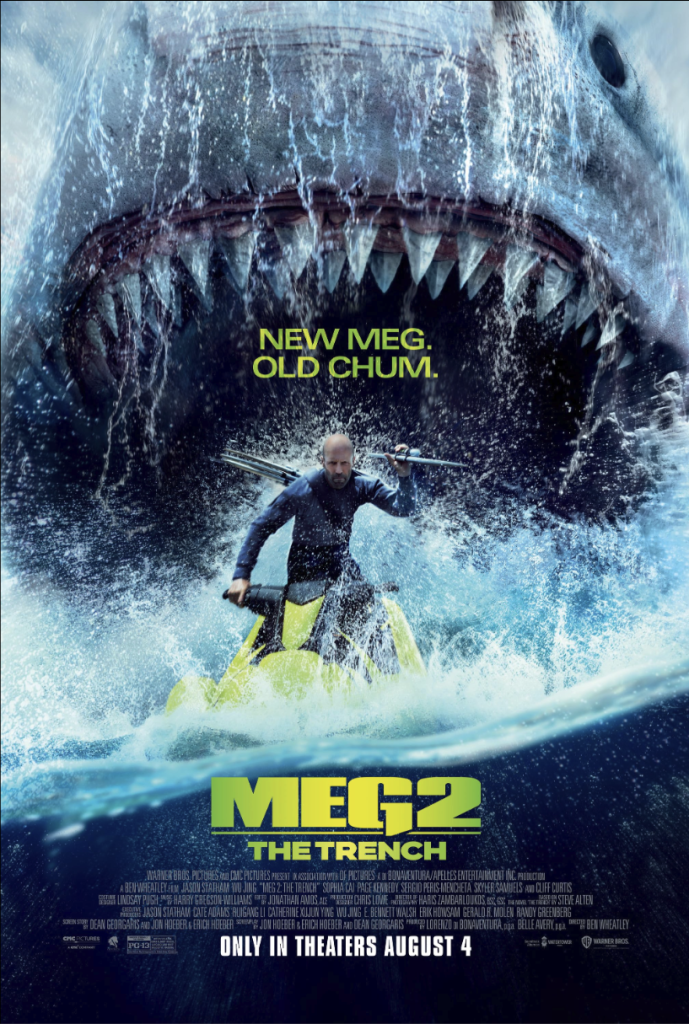
When the briefing for the trench dive started, they told me to stay topside, to be “useful” in the control room. I heard all the words and chose none of them. I hid. I made myself small in the sub’s shadows, where the hum of power drowned out the part of me that still wanted to be the obedient girl. If you’re judging me, you’ve never been fourteen and certain your heart would evaporate if you didn’t prove you belonged.
We descended. The water thickened. The thermocline was a door painted with pressure, and we kicked it open at speed. Alarms spoke in clipped sentences. Jonas’ voice went cold and precise the way flames go blue when they’re hottest. He found me. He froze. “We’re surfacing.” But the ocean doesn’t surface for anyone’s plan, and neither did the trouble that came next.
Something struck us from below—hard enough to put a crack through logic. The dark filled with motion that didn’t care about our names. We weren’t alone down there; Haiqi wasn’t either. She’d come because something in that old cold world had called to her—something that remembered the shape of her species and answered back.
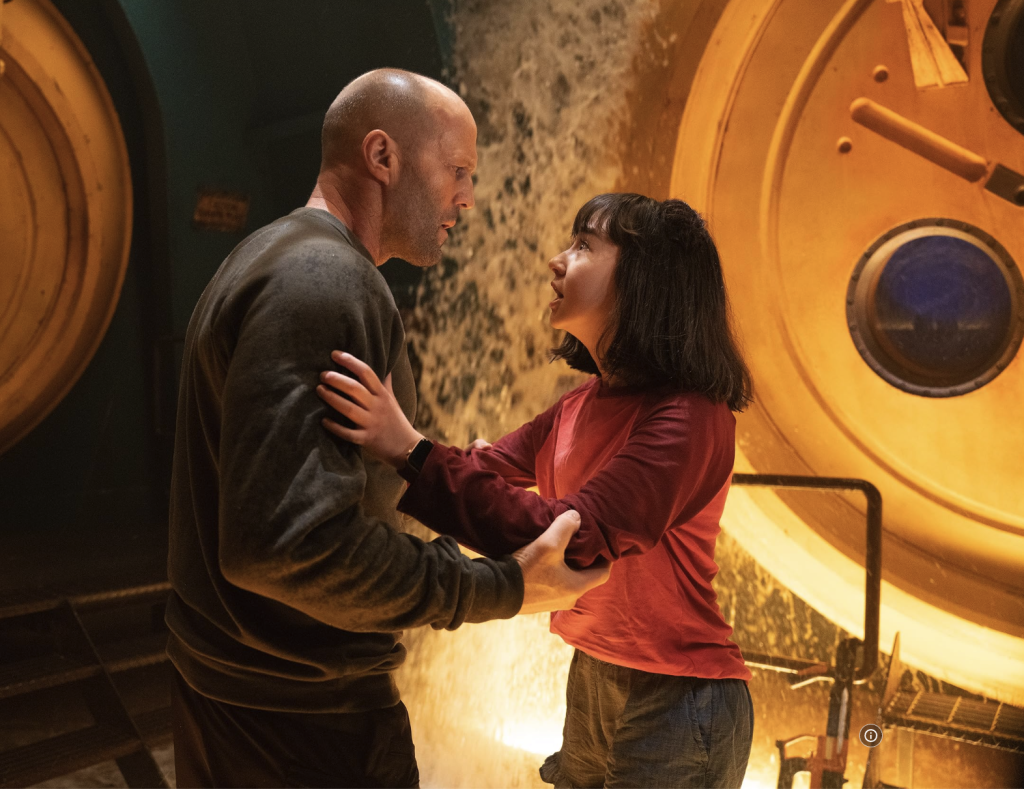
Then betrayal walked in wearing a human face. Systems failed that weren’t supposed to. Comms died. A station flickered to life in the abyss that didn’t belong to us. “Mining,” someone said, as if carving up the seafloor were no different than taking an extra slice of cake. Sabotage stung worse than the pressure. When the sub gave up its last good sound, decisions got simple: walk or die.
We suited up. Two hours of air, give or take. One foot then the next. Fish the size of nightmares tested our metal. Tiny jawed things worried at our suits like guilt. Every meter toward the seafloor station felt like walking across the ribs of a sleeping god. Somewhere behind us, Haiqi moved with the unstoppable calm of a freight train, not hunting us—just…going. Somewhere above, a sponsor smiled for a camera, and someone in our own house counted down the minutes until they’d sell the ocean back to itself.
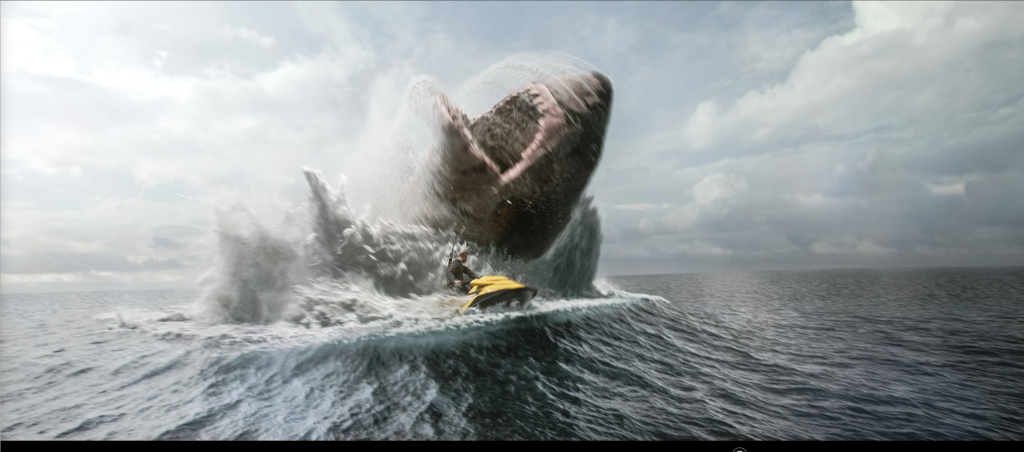
We made the station in pieces and found our own people at war with shadows. There was a mole. There’s always a mole when money gets close to secrets. Doors that should have opened stayed locked; doors that should have stayed locked opened onto gun barrels. Jonas, who hates speeches, made one look with his eyes and we all understood: we save who we can save, and we keep moving.
Moving meant surfacing through a breach blown by greed. It meant the trench vomiting its past into the present: more megs, not just Haiqi. Something reptilian and mean that learned to sprint at the scent of fear. And it meant a beach called Fun Island, soft sand and bright cocktails, a place designed to make you forget everything harder than sunscreen. The old world arrived there like a wave with teeth.
The first scream snapped the fantasy in half. Laughter twisted into stampede. The ocean threw a tentacled rumor onto the boardwalk and children learned new shapes for terror. Those big lizards stormed the shallows and ran through plastic castles like they were smoke. I wanted to shut my eyes. I didn’t. Jonas didn’t either.
Here’s what no one tells you about courage: it’s rarely elegant. It looks like duct-taped plans and the ugliest equipment you can borrow. It looks like Uncle Jiuming saying “Jet skis,” and Jonas saying “Harpoons,” and everyone else saying, “That’s insane,” and doing it anyway because arithmetic fails where duty begins. Spray in the face. Engines whining. A fin like a gray mountainside cutting toward the crowd. You don’t aim with your arms in a moment like that; you aim with every year you’ve spent becoming the person who won’t run.
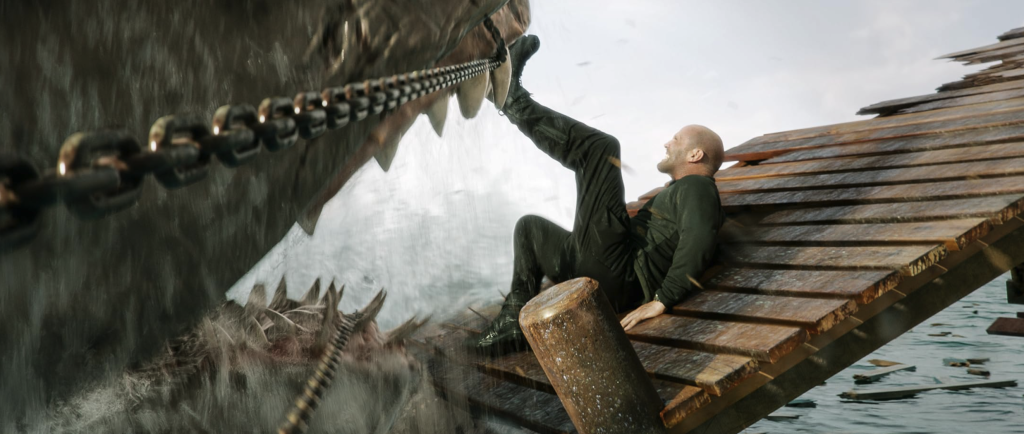
We fought. We missed. We hit. We watched explosions shudder through ancient cartilage. We yelled at each other across the water like family does—cursing and laughing in the same breath because the line between those emotions is thin when you’re alive by inches. People we didn’t know clutched each other and learned the vocabulary of gratitude.
It didn’t feel like victory when the water finally went quiet. It felt like a bargain we made without reading the fine print. The sea will outlast us. The question is the mark we leave while we’re here.
Afterward, someone asked about Haiqi. The answer is complicated. We didn’t cage her again. We didn’t beat her. We didn’t ask her to perform for donors to make the world feel civilized. She slid past us, vast and purposeful, like a thought too big for words. Maybe pregnant, someone whispered. Maybe not alone. I watched her tail carve the horizon and thought of lullabies I barely remember. The ocean keeps its own family tree, and it doesn’t need our permission to grow.
What I learned:
- Found family is more than biology. I call Jiuming uncle because he loves me like one. I follow Jonas’ rules (most days) because he breaks his back keeping me alive. Family is the people who choose you when the alarms start.
- Curiosity is holy and it is dangerous. I snuck onto that sub to prove I was brave. I was lucky the lesson didn’t cost someone I love. Wanting to know is good; earning the right to go is better.
- Greed is a poor engineer. The trench station looked cutting-edge. It was built on theft and lies. Things built that way collapse when the pressure comes. They always do.
- Respect is not the same as fear. I respect Haiqi now more than ever. She is not a villain. She is an answer to a question older than us. If we must share a coastline with her children, fear won’t save us—wisdom might.
That night, we ate noodles that tasted like they were cooked by someone who understood the ache behind victory. Jonas said I got reckless. I said everything was “totally under control,” and we both laughed because we knew what it had cost to make that half true. Later, when the lights went low and the room went soft, I wrote this down so I wouldn’t forget:
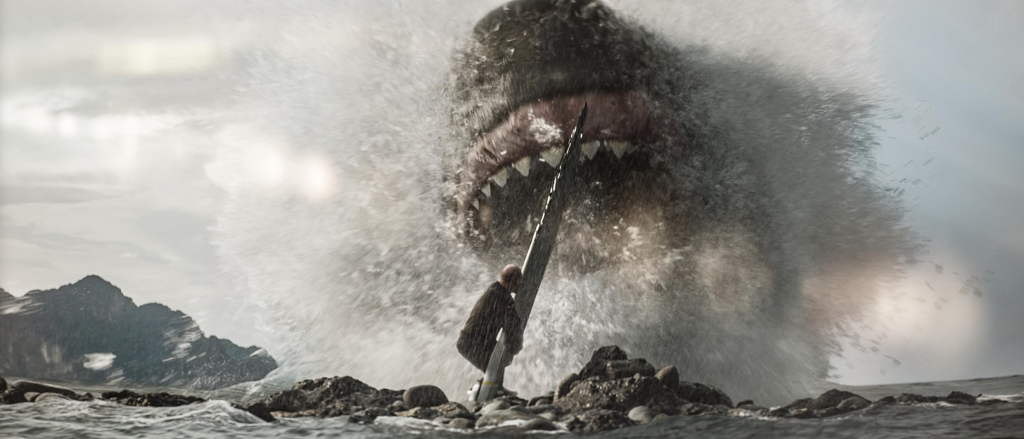
I went under the thermocline trying to prove that I belonged to the sea. The sea reminded me I belong to people first. And yet, when Haiqi’s shadow folded into the dark, a piece of me went with her—out past the drop-off, into the old water, where things with impossible teeth still dream of the surface.
If we’re careful, maybe the next time those dreams rise, we’ll be ready—not to conquer them, but to meet them with the kind of courage that chooses protection over possession, truth over profit, and love over the easy exit. That’s the only way any of us make it home.

